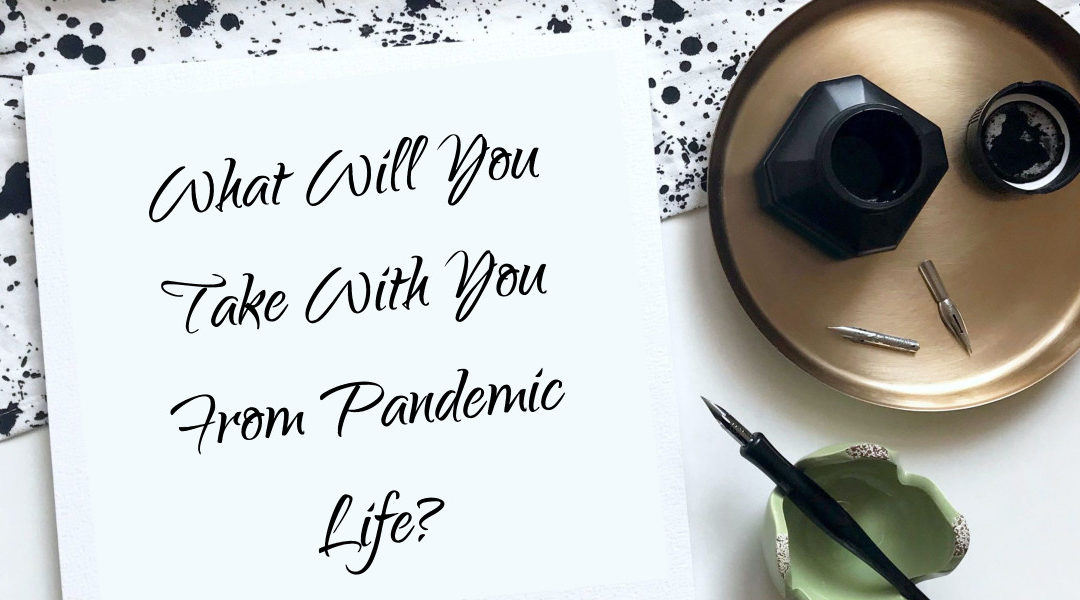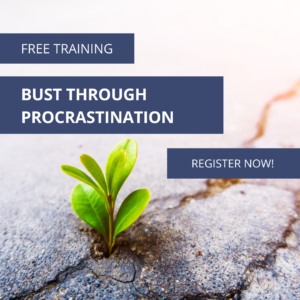It’s not just you: The last few months have been downright strange for a lot of us.
Earlier this year, we grappled with uncertainty about what would happen when reopening started. Now we’re actually living it. Mask mandates are being dropped in many places. Businesses that have been functioning remotely are calling employees back into the office. After 16 strange months, I’m looking around and seeing signs of pre-pandemic normalcy everywhere.
It feels…. weird. It’s wonderful, of course—but it also feels uncomfortable to drop a lot of the defenses we’ve been so diligent about maintaining.
I’m hearing people really struggle with this adjustment. There’s a lot of anxiety around reentry. We got used to feeling uncomfortable being around people, and now we’re expected to go back into crowds. It’s also hard to trust that things can be good again after having had the rug pulled out from under us so abruptly last year. The ground still feels unsteady. And we’re still processing all the pain and fear that have overwhelmed us at times.
No wonder things feel weird. As you work on reentering the world and moving forward with your goals, I don’t expect you to just put this experience behind you. It has changed our brains, and changed our habits. We don’t know the longterm effects yet, but I think everyone will be permanently changed in some way by the pandemic.
So don’t just try to forget it and put it behind you. If it’s going to change you, let it change you for the better. As you think about what you want your post-pandemic life to look like, I want to challenge you to think about the parts of your pandemic life that you want to hold onto and carry into your future.
Finding the Good From the Pandemic
There are a few ways to use your pandemic experiences to align your life with your goals going forward.
First, what new habits or behaviors did you acquire that you want to hold space for? If you grew to love taking walks around the neighborhood, or finally learning to cook, or working on the side business that you never had time for before, recognize that you can build time into your post-pandemic schedule for them.
Second, look at the challenges from the past 16 months as reminders of the things that you craved during that time. What did you miss the most? What did you realize you had taken for granted?
Thinking about the things you wanted to do then and couldn’t may help you think about how you want to schedule your time going forward:
- Maybe the constant fear of getting sick gave you a new appreciation for your health, and you want to get serious about finding time for exercise every day.
- Perhaps being cooped up at home with a spouse and kids for more than a year made you appreciate how much you need dedicated alone time every day.
- Being unable to see your long-distance family might have made you vow that you would take regular trips to see them once you were able to.
Moving Forward with Better Time Management
Now that more things are possible, it’s time to actually get out there and do them. But that means finding the time for everything, and that’s going to be harder than ever once your schedule fills back up to pre-pandemic levels.
Having a flexible weekly plan has never been more important for good time management and productivity. Being intentional about how you schedule your time will allow you to carve out space for tending to your quarantine garden and spending time with the people you’ve missed and still get all your important work done.
If you’re struggling with planning, time management and productivity, I’m always here to offer my support. One way that I can do that right now is through my Time Matters Boot Camp 90-Day Virtual Program. I think the timing is perfect for this program. Weekly sessions, over the course of 12 weeks, provide the kind of structure and accountability that can actually help you take control of your time. You don’t need to navigate this strange moment of reentry alone; I’m here to help. Join us now —click here to learn more and register.
Gratefully,
Sarah



